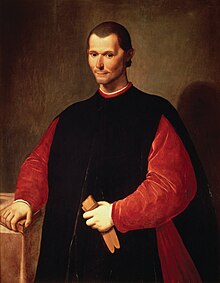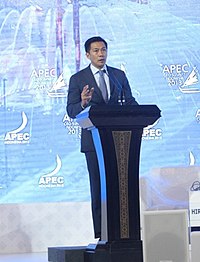primary terminal shoot or trunk of a tree. Large. usually upright stem. A stem that dominates a portion of the crown by suppressing lateral branches.
Leadership, both as a research area and as a practical skill, encompasses the ability of an individual, group, or organization to "lead", influence, or guide other individuals, teams, or entire organizations.


"Leadership" is a contested term. Specialist literature debates various viewpoints on the concept, sometimes contrasting Eastern and Western approaches to leadership, and also (within the West) North American versus European approaches.
Some U.S. academic environments define leadership as "a process of social influence in which a person can enlist the aid and support of others in the accomplishment of a common and ethical task". In other words, leadership is an influential power-relationship in which the power of one party (the "leader") promotes movement/change in others (the "followers"). Some have challenged the more traditional managerial views of leadership (which portray leadership as something possessed or owned by one individual due to their role or authority), and instead advocate the complex nature of leadership which is found at all levels of institutions, both within formal and informal roles.[page needed][need quotation to verify]
Studies of leadership have produced theories involving (for example) traits, situational interaction, function, behavior, power, vision and values,[need quotation to verify] charisma, and intelligence, among others.
